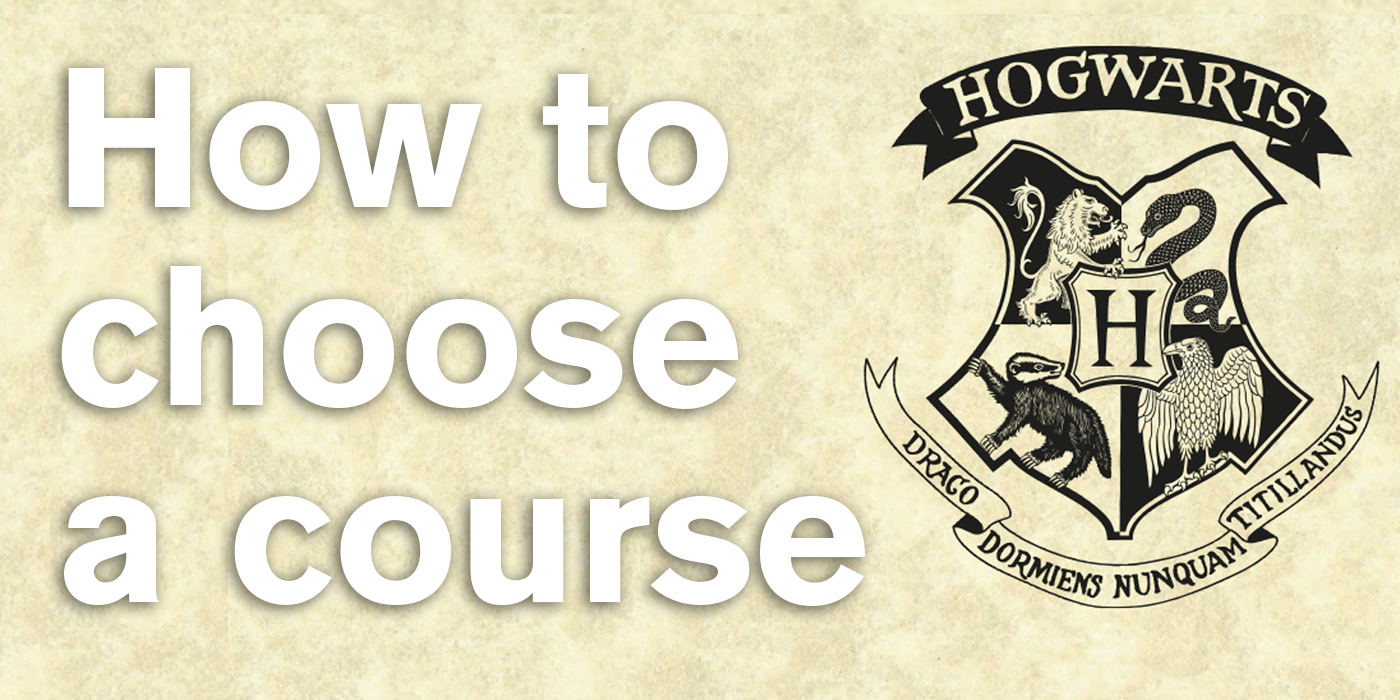
August 21, 2018, by Talia Jeffries
How to choose a course
You’ve only just gained the confidence to ask the teacher whether you can go to the bathroom, and now they’re asking you to pick a degree that will direct the course of your entire life.
For some, this task can be overwhelming, but the good news is that the choices on offer are broader than you can imagine; chances are you’ll end up studying something you had never even heard of when you were 16. With this in mind, ask yourself these simple questions, and make sure you make the right choice.

- What am I interested in?
It’s important to remember that whatever you choose you’re going to be stuck with for at least 3 years, and often even longer. That means that if you want to remain sane, your course is going to have to spark your interest in some capacity or another. Whether you’re a bookworm and think English is the degree for you, or you’re mesmerised by the sciences, make sure that what you choose captures your imagination and makes you want to get out of bed and go to those 9am lectures.

(Disclaimer: even if you do love your course, you still probably won’t be able to get out of bed)
- Am I studying this because I want to, or because someone else wants me to?
It may be the case that you have a teacher or parent who’s putting pressure on you to study something, or maybe you feel like you should study the course because it’s ‘impressive’. If you find yourself choosing your course with these factors in mind, STOP and THINK. As you get older, your own independent-led thinking will become increasingly important, and the opinions of others less so. Ultimately, you have to study something that benefits you, and not those around you.
- What am I good at?
So you’ve come to the conclusion that you’re interested in aerospace and astronomy, but your A-Levels are Art, Sociology and History. Clearly, being interested is just half of the equation. Make sure that what you’re choosing is something you can genuinely see yourself succeeding in. As you enter university, studying becomes completely independent, and modules move at the speed of light. On top of this, you’ll be surrounded by other students who are incredible at their individual disciplines, so you’ll need to be able to work at the same pace as them. Make sure your goals are realistic and that you’ll be able to keep up with the demands of university life.

4. What do I want to be when I grow up?
This is a question that many people (myself included) never figure out the answer to, but if you’re one of the lucky ones that knows where you see yourself in 5 years time, make sure that the course you choose will get you on track to that goal. To put it simply, don’t study travel and tourism if you want to be a doctor, and don’t study veterinary sciences if you want to be a lawyer. It’s still early, but think about what future employers might want to see from you, and the skills that your course can give you to help make you more employable.

Hopefully you’ve asked yourself these questions and come to a solid conclusion. Well done you!
If not, don’t worry. This decision is important, so take your time, and try different things until you find something that fits. Ultimately, the one thing to bear in mind is if you do what you love, you won’t work a day in your life (except exam season gets pretty tough, but let’s cross that bridge when we come to it.)


I love this website,you really have great stuff.